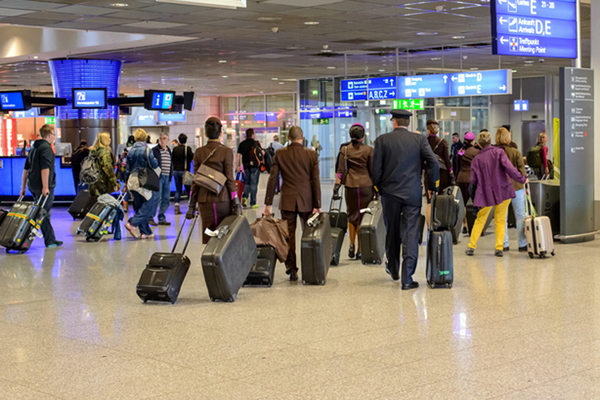- La Feria Community Holds Succesful Business Mixer Event
- Little Nashville to Take Place in Downtown Mercedes
- Lions Basketball Captures District Gold
- La Feria ISD Students Compete in Regional Chess Tournament
- Lions End First Half of 32-4A on a High Note
- La Feria ISD Held Another Successful Parent Conference
- Strong Appearance for Lions at Hidalgo Power Meet
- LFECHS Students Get to Meet Local Actress
- Students Participate in Marine Biology Camp
- Two LFECHS Students Qualify for All-State Band
Texas Refugee Advocates Criticize Trump’s Immigration Order
- Updated: January 30, 2017

Under President Trump’s new immigration policy, some refugees arriving at U.S. airports over the weekend were detained or turned back. (ampak/iStockphoto)
by Mark Richardson
DALLAS — As President Trump’s executive order plunged the U.S. immigration system into chaos over the weekend, refugee advocates in Texas were scrambling to make sense of the situation.
Hundreds of migrants were detained at international airports around the country, including at Dallas-Fort Worth International and Houston’s Bush Intercontinental, before an order from a federal judge prompted the release of most – but not all – of them.
Aaron Rippenkroeger, CEO of Refugee Services of Texas, a statewide nonprofit advocacy group, called President Trump’s new policy un-American.
“We don’t agree with this action, but even so, there’s just so many better ways it could’ve been done,” Rippenkroeger said. “But to do it so abruptly with people in transit – literally mid-air – is just horrifying. It’s really a travesty, both the action and also the way it was carried out.”
The president signed the order Friday afternoon. It bans Syrian refugees, temporarily blocks citizens of seven Muslim-majority countries and suspends all refugee admissions for four months.
Many refugees were in transit when the order was issued and were initially detained or turned back when their flights arrived in the U.S.
The events spurred protests at major airports over the weekend, including those in Texas. Rippenkroeger said the new policy is causing fear and confusion among refugees already settled here.
“We have refugees coming into our office,” said Rippenkrieger, “saying, ‘Am I going to be sent back to the war zone that I came from? What does this mean? Am I no longer allowed to stay here? Am I not going to be able to go through the citizenship process that you all explained to me?'”
Despite opposition from the political right, Texas has taken in the second-greatest number of refugees in the U.S. in recent years. Rippenkroeger said the vetting for migrants wishing to enter the U.S. already is the toughest anywhere.
“The most extreme in the world, already, from any country by far,” he said. “It’s more rigorous than any other country does and by far the most rigorous that the U.S. has ever had, and by far more than anyone else traveling to the U.S.”
Rippenkroeger said he is heartened that, despite the partisan rhetoric, thousands of everyday Texans have volunteered to help settle the state’s refugees and make them feel welcome.


